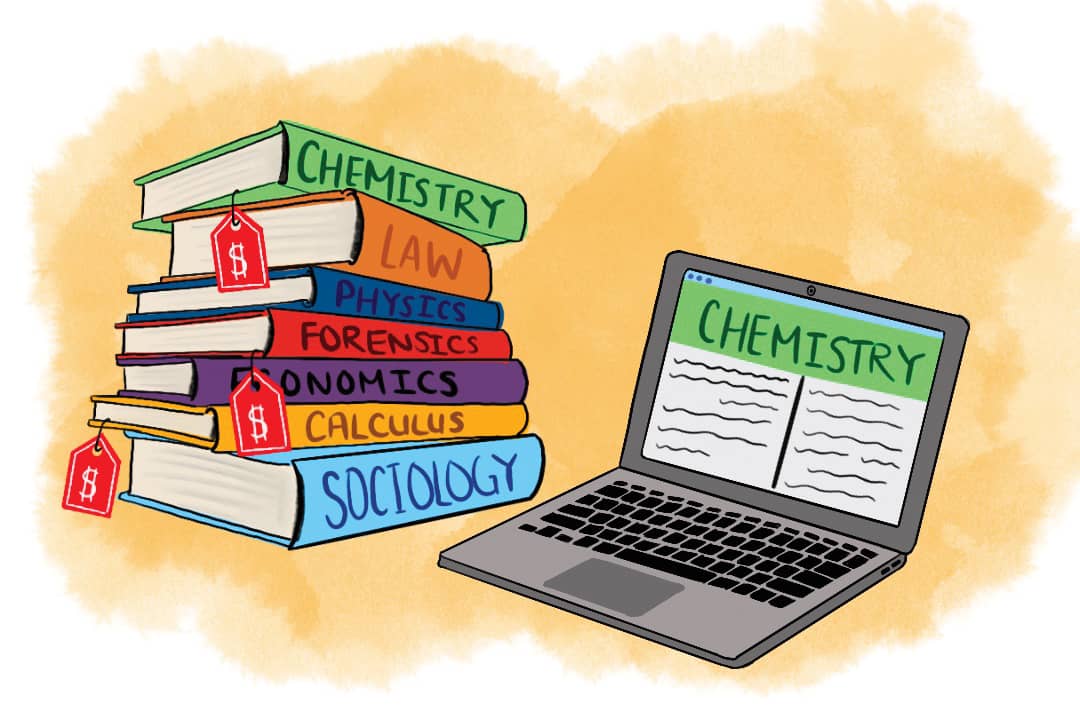As students at U of T begin yet another school year, an old-time nuisance has reappeared — buying textbooks. With the high costs of tuition and living expenses and the added cost of textbooks, going to university isn’t cheap.
The increase in textbook prices every year is simply unreasonable. In 2014, research found that the cost of new textbooks was increasing faster than the cost of clothing, cars, food, and even health care. In 2017, it was estimated that the average U of T student spent around $707.22 on books.
Now more than ever, it is time to address the huge elephant in the room — why, in the era of the internet, are textbooks still a trending complaint among college students? One answer to that question is the skyrocketing price of mandatory course textbooks.
Textbooks have had their fair share of importance in academic life, especially back in the days when the best way to learn course material was to just read the course book from cover to cover. Nevertheless, putting aside sweet nostalgia and considering the advent of the internet, should textbook prices still be so expensive even in today’s digital society?
Perhaps a good Rotman student would argue that, with the advance in technology, book
prices would naturally decrease, as they need to match their marketability with their new twenty-first century rivals: online learning platforms. However, not only have textbook prices not decreased, but they have been on the rise.
Henry L. Roediger III, a psychologist and former visiting assistant professor at U of T, has a very compelling theory, with which I concur. Having been in college during the glorious, hippie
1960s, Roediger recounts that the market for used books — that is, reselling — has always been around in the academic world. However, it was limited to a student selling books to another student on a hit-or-miss basis, which would not generally pose a threat to the textbook companies. However, alongside the rise of the internet, used textbook companies began to grow and started making large profits on book sales that were not originally theirs.
Textbook companies, therefore, decided to take protective measures, such as assigning time-
limited access codes for each course textbook, putting materials behind paywalls, and
graded online course-related problem sets. The combination of these factors has led to
the production of more complex online books, which in turn has also led to a rise in the price of course books. The different measures taken by textbook companies have led me to believe that perhaps the paradoxical rise of book prices and the internet is not so contradictory at all, but rather intuitive.
Although it is uncertain how this entire complex story will unfold, there is one certainty in all of
this: college students are taking the hit. According to CBS News, around 65 per cent of students skip buying required textbooks at some point in their college career because they simply can’t afford them.
Acknowledging the complex business scenario that higher education has become, it is needless to say that universities must work on a series of alternative solutions for their students.
After all, education should always come before any financial dispute between two capitalist-driven corporations.
Whether it be by lowering tuition, improving deals with textbook companies, or simply giving students discounts at university bookstores, the rising cost of textbooks needs to be addressed. Students should not have to worry about including the soaring prices of books in their budget when making the decision to go into higher education.
Tiago Berbat Curio is a second-year student studying mechanical engineering.


